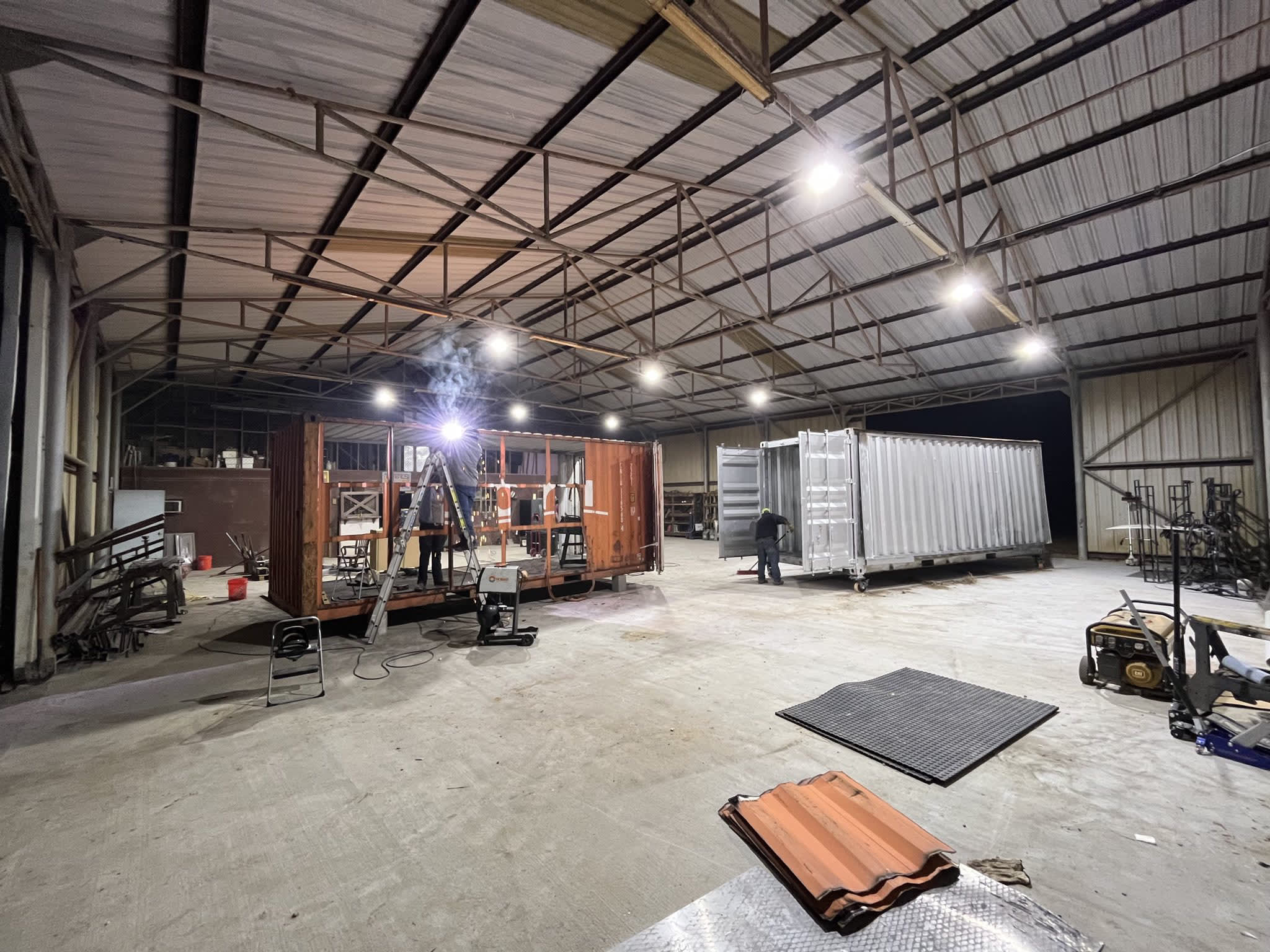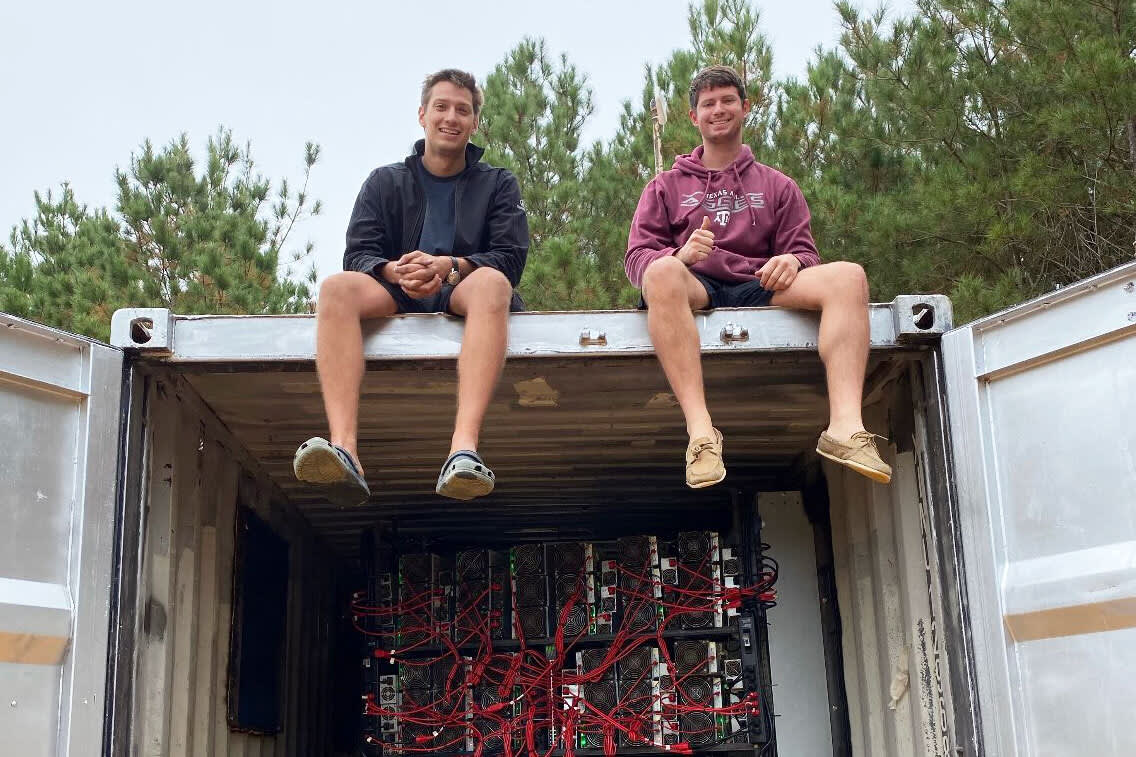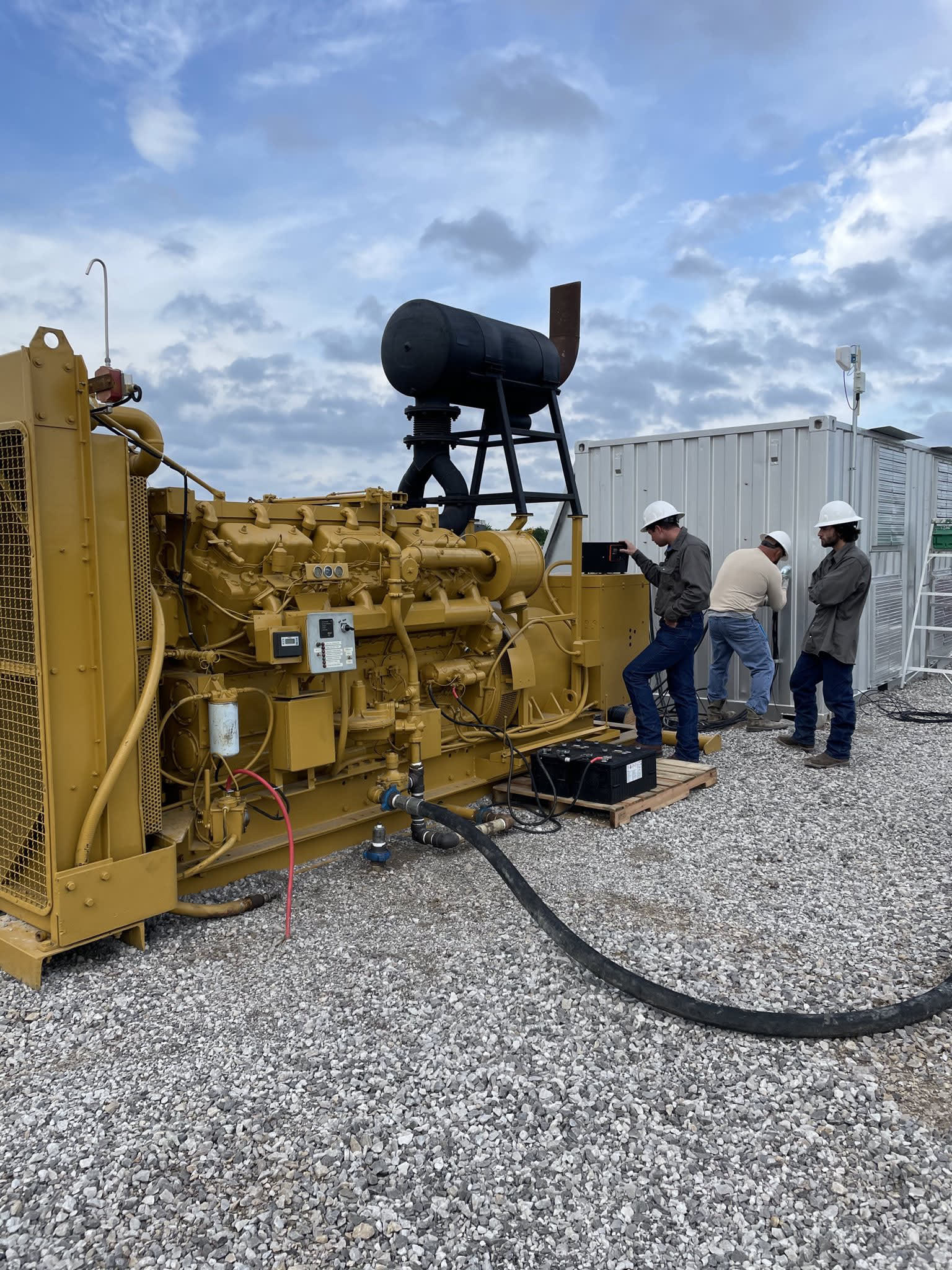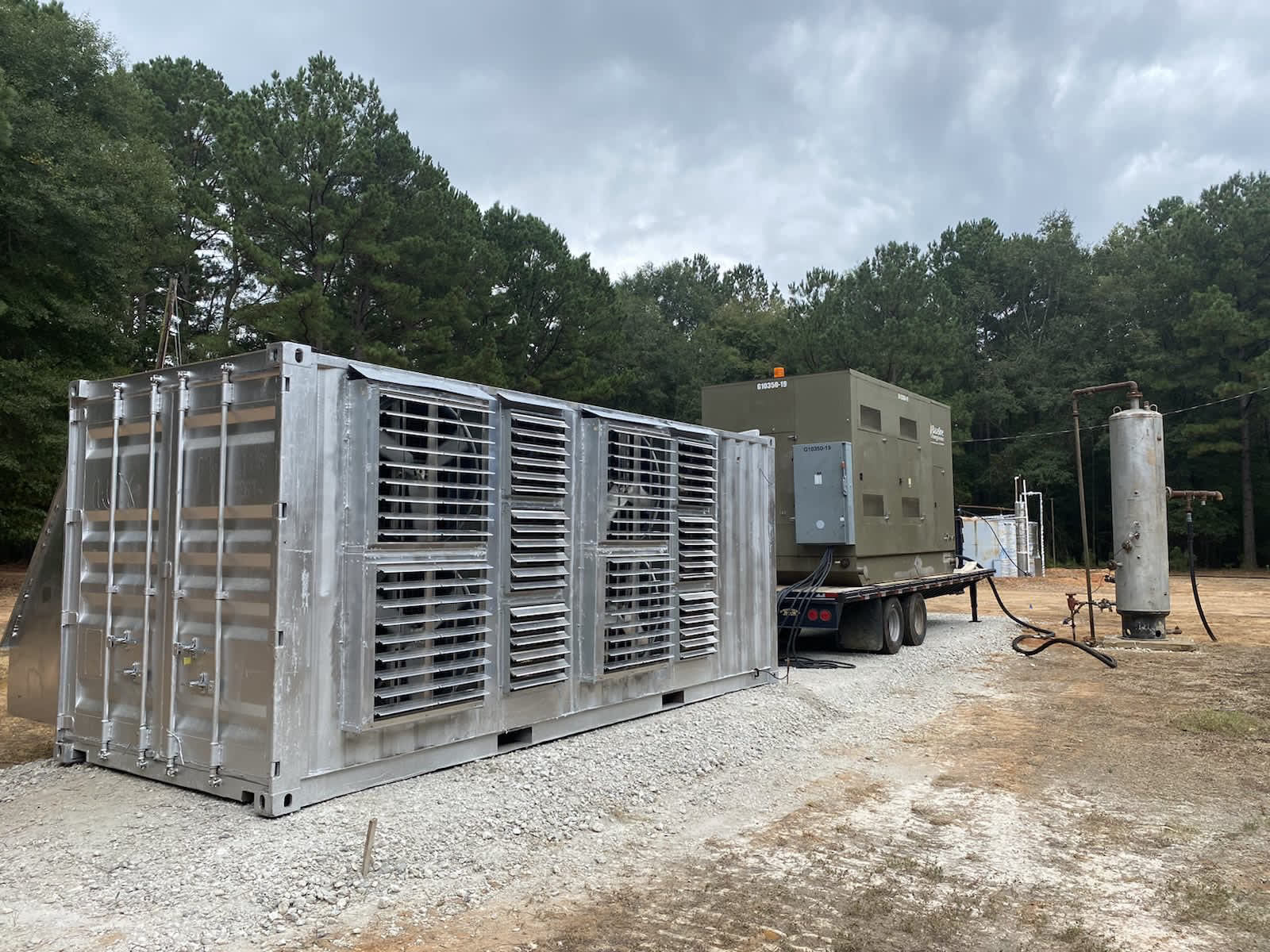MicroStrategy's Significant Bitcoin Impairment Losses May Mislead: Berenberg
Turkish Crypto Exchange Thodex CEO Faruk Özer Sentenced to 11,196 Years in Prison for Collapse
DeFi and Credit Risk
But Whitehead, an engineer from a family with a long history in oil and gas production, and Lohstroh, a finance major with a bitcoin obsession, ignored the skeptics and invested all of their earnings from high school side jobs in lawn care and landscaping into Giga Energy Solutions, a company that mines bitcoin from stranded natural gas.
Oil and gas firms have been grappling with the issue of what to do when they hit a natural gas deposit while drilling for oil for years. Unlike oil, which can be simply trucked to a remote location, gas needs the use of a pipeline. If a drilling site is close to a pipeline, the gas is thrown in and the buyer on the other end takes whatever cash the buyer is ready to pay that day. However, if it's more than 20 miles from a pipeline, drillers would usually burn it off or flare it. As a result, you'll often witness flames leaping from oil fields.
Drillers are, in fact, burning money in addition to the environmental consequences of flare gas. It was a massive problem with an apparent answer to these two 23-year-old Aggie alums.
Giga anchors a shipping container containing tens of thousands of bitcoin miners to an oil well, diverting natural gas to generators, which convert the gas into electricity, which is then used to power the miners. According to Crusoe Energy Systems of Denver, the technique cuts CO2-equivalent emissions by around 63 percent when compared to continuing flaring.
"Growing up in the oil and gas sector, I was often exposed to flares." On the sidelines of the North American Prospect Expo conference in Houston, a hallmark event for the industry, Whitehead told CNBC, "I realized how wasteful that was." "Not only is it a new approach to reduce emissions, but it's also a new way to monetize gas."

"It's not under anyone's control, and you don't have to ask permission to use it," Lohstroh explained. "That's what drew me to bitcoin in the first place."
Whitehead has a similar attitude, telling CNBC that his ideas on self-sovereignty, privacy, and individualism were among the factors that led him down the bitcoin rabbit hole.
"I was more concerned with the adoption than with the expense." "I felt this was a terrific thing for humanity," Whitehead added.
Oil and gas collide with bitcoin
Bitcoin mining may be thought of as both a network's security layer and a means for putting new bitcoin into circulation.
A bitcoin mining setup uses a computer to run a software that tries to solve a challenge before anybody else. Solving the riddle completes a block, which produces new bitcoin while also updating the digital ledger that keeps track of all bitcoin transactions.
"The nice thing about bitcoin is that it's a portable market; you can bring it straight to the source of energy," said Steve Barbour, founder of Upstream Data, a Canadian business that designs and provides portable mining equipment for oil and gas installations.
If a gas well isn't already near a pipeline, it's unlikely that it'll be large enough to justify the time and price of constructing a new line. And if a driller can't sell the natural gas right now, he or she will usually dispose of it on the spot.
One approach is to vent it, which releases methane straight into the atmosphere, which is a bad idea for the climate because methane's warming effects are far stronger than carbon dioxide's. Flaring the gas, which involves actually setting it on fire, is a more ecologically friendly approach.
Flares, on the other hand, are only 75 to 90% efficient, according to Adam Ortolf, Upstream Data's business development manager in the United States. He said that "even with a flare, part of the methane gets expelled without being combusted."
On-site bitcoin mining can be extremely useful in this situation.
According to Ortolf, 100% of the methane is combusted when it is fed into an engine or generator, and none of it leaks or vents into the atmosphere.

"However, no one will put it via a generator unless they can profit from it, because generators are expensive to purchase and operate," he explained. "As a result, producers will not internally burn the gas unless it is commercially viable."
Bitcoin makes it economically viable for oil and gas firms to internally consume their methane rather than externally flare it, putting an end to stranded gas.
However, Ortolf has had to persuade people for years that parking a trailer full of ASICs on an oil and gas field is a wise and financially viable decision.
"When I talked about mining bitcoin on flared gas in 2018, I got laughed out of the room," Ortolf added. "It was ridiculous to think of bringing hydrocarbons to market without a counterparty."
Fast forward four years, and Upstream is a thriving business. It presently collaborates with 140 bitcoin mining operations in North America.
"This is the finest present the oil and gas business could have received," Ortolf added. "They were leaving a lot of hydrocarbons on the table, but now they don't have to sell energy because of location."
Bitcoin miners, on the other hand, receive what they desire most: inexpensive power.
"The thing about oil and gas is that it's a highly dispersed and dependable power source," Barbour explained. "As a result, a distributed sales point and reliable power draw like a bitcoin mine is a good fit." "It's almost like a match made in heaven."
Ignore the naysayers
Whitehead was mowing his parents' lawn in the southeast Texas hamlet of Buna (population around 2,000 people) the summer before his junior year of college when he received a text from Lohstroh, then a student and buddy. In it, Lohstroh recommended that they purchase a mobile bitcoin mining container from Upstream Data and hook it up to a gas well on their own.
"I simply stopped the lawn mower, walked directly to my father, and said, 'I have locate flare gas right now,'" Whitehead said.
Whitehead, who comes from a long line of "wildcats," as those who participate in high-risk exploratory drilling are known, had a natural reaction.
"I call myself a digital wildcatter because this is the next step of wildcatting," he added, referring to bitcoin mining at natural gas wells.
Whitehead and Lohstroh flew up to Canada a week after receiving the communication. The couple were unfazed by the logistical challenges, which included driving a U-Haul truck three hours to Upstream's facility in Calgary because neither of them was old enough to rent a car.

Steve Barbour, Upstream's chief engineer and creator, told CNBC that he tried to persuade Lohstroh not to buy the container since it was still being field tested, but Lohstroh was adamant about placing an order.
"Those two are really bitcoiners...they're doers," Barbour said of the Giga co-founders. "They're both enterprising and wholesome, which is how I think of Texans as a Canadian." "You guys are simply amazing."
The college friends used a connection who had flare gas after they acquired the physical equipment they required.
They then beat the pavement in an attempt to stir up business. The Giga co-founders claim they handed out roughly a thousand booklets during the 2020 NAPE event to attempt to pitch attendees on the notion of monetizing stranded gas.
"A lot of people were unaware of it. The majority of folks laughed at us. 'It's the craziest thing I've ever heard,' most people said,'" Whitehead added. Others thought it was great but didn't believe it would work, and a couple stated we needed to speak with the CEO of the firm.
After then, there was the epidemic.
"Covid struck and brought the globe to a halt," Whitehead told CNBC. Giga continued to operate 35 miners at its launch location despite statewide lockdowns, but commercial development came to a standstill.
"There was no traction in space," Lohstroh explained. "Bitcoin was in a bear market at the time." We were rushing around to meetings attempting to pique people's interest in bitcoin mining, but there was none."

Smaller customers in north and east Texas were tracked down because they were either "breaking the regulations" or couldn't secure licenses and were just squandering gas. These smaller businesses, according to Whitehead, were frequently the ones that ignored regulatory compliance.
"We were able to step in and say, 'Hey, you're flaring, and that's not good.'" You're breaking the law, and you have an advantage here because you're a shut-in well. "We can handle all this gas," Whitehead said.
The company's actual turning point occurred in December 2020, when the price of bitcoin surpassed the $20,000 mark. That's when some of the biggest names in the oil and gas sector took notice, and executives from publicly traded firms approached them about partnering.
Companies from all over the world have flown in to see Giga's operations and learn how the process works.
"People from Saudi Arabian firms have visited our East Texas facilities. We're bringing them out for a cookout and showing them a bitcoin mine, and they've probably never seen a pine tree before. "They adore it," Whitehead added.

According to CNBC, Giga's revenue in 2021 was more than $4 million, and it expects to make more than $20 million by the end of 2022.
Some of their mining locations, according to Whitehead, have helped to reinvigorate the local economy by providing jobs for field technicians and bitcoin pumpers who go out to inspect the facilities. They are often the primary source of money in the tiny community where they have set up a bitcoin mine.
"An place that was once a ghost town has now discovered methods to monetize the stranded energy that they were wasting, and that's what gets me thrilled, because that's what's helping the community overall," Whitehead said.
Many bitcoin miners now believe that oil and gas will dominate the crypto mining sector in the future decades, which is good news for Giga's business plan.
"It's a whirlwind out there," Barbour added.
However, according to Lohstroh, the next step is for energy producers to become bitcoin miners themselves.
"I believe that, whether it's electricity producers, natural gas producers, upstream, midstream, or downstream, that's the next major transformation." I believe that bitcoin mining will have an impact on all areas of the business, since bitcoin mining is inherently linked to electricity, and the goal of energy is to generate power. As a result, I believe you'll see a lot of semantics and how they're linked," he added.
=====
Related Video:















